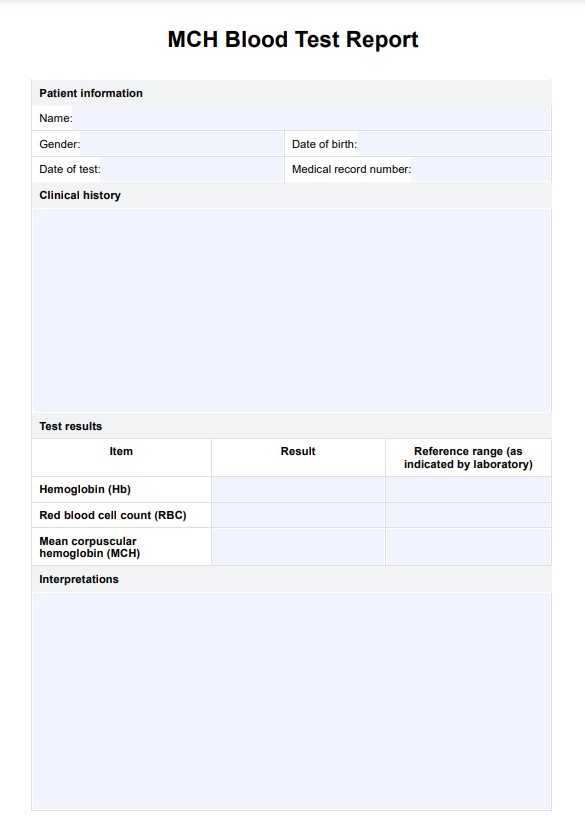A primary care physician, hematologist, or other healthcare professionals may request an MCH blood test to assess hemoglobin levels and overall health.

MCH Blood Test Reports
Access a free MCH Blood Test Report template and an example. Learn about the importance of this test and how to interpret results.
MCH Blood Test Reports Template
Commonly asked questions
MCH blood tests are typically used when there is suspicion of anemia or other blood disorders. They are also valuable in monitoring treatment for conditions affecting what would otherwise be healthy red blood cells. Additionally, these tests may be conducted as part of routine health check-ups for specific patient populations.
The test usually takes only a few minutes, but considering factors such as sample collection and processing time, the entire process may take up to an hour. Results are generally available within a few days.
EHR and practice management software
Get started for free
*No credit card required
Free
$0/usd
Unlimited clients
Telehealth
1GB of storage
Client portal text
Automated billing and online payments











